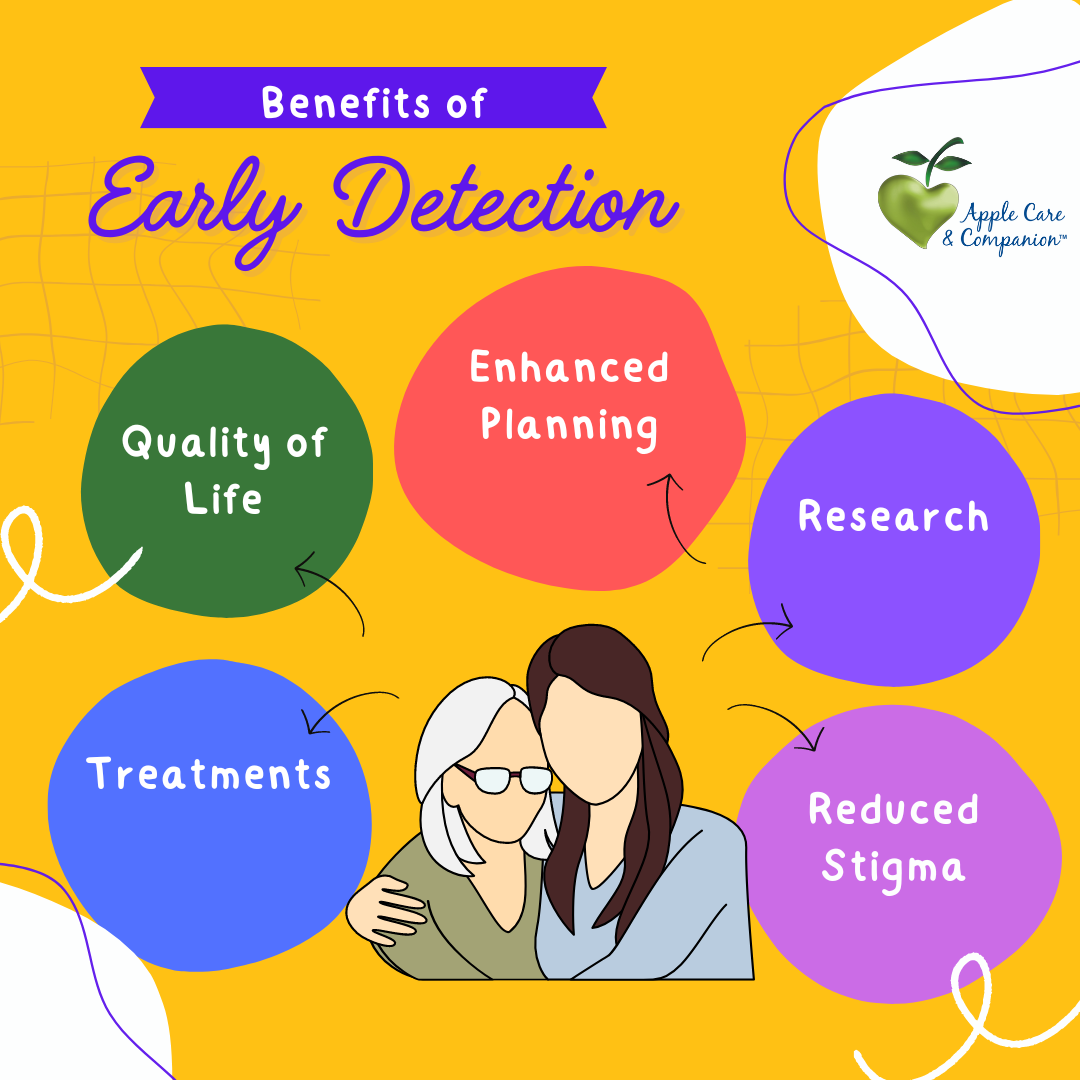Importance of Early Detection and Diagnosis of Dementia
All About Dementia (Part 2 of 4 part series)
Early Detection: A Story of Hope
Barbara had always been a sharp-witted woman with a quick mind. But lately, she'd notice that things were off and she’d been having trouble remembering things. She'd misplace her keys, forget appointments, and had issues remembering how to drive to her favorite restaurants . At first, she dismissed it as a normal part of aging.
However, her family began to notice the changes and encouraged her to see a doctor. After a thorough evaluation, Barbara was diagnosed with early-stage Alzheimer's disease. The news was devastating, but it also brought a sense of relief. Now she knew what was happening and could seek help.
With early detection, Barbara was able to participate in clinical trials for new treatments. She also joined a support group where she found companionship and advice from others facing similar challenges. Her family learned about the disease and how to best support her.
While there's no cure (yet) for Alzheimer's, there are treatments to slow the progression of the disease. Early detection allowed Barbara to make the most of her remaining years. She was able to travel, spend quality time with loved ones, and enjoy life to the fullest. Her story is a testament to the power of early diagnosis and the importance of seeking help when you notice changes in your cognitive function.
Benefits of Early Detection of Dementia
Recognizing the early signs of dementia is crucial for getting a proper diagnosis and accessing available treatment options.
Early diagnosis of dementia offers several benefits for both the individual and their loved ones.
Recognizing the early signs of dementia is crucial for getting a proper diagnosis and accessing available treatment options. Early diagnosis of dementia offers several benefits for both the individual and their loved ones:
Improved Quality of Life: Early diagnosis allows for early intervention, which can help to slow the progression of the disease and improve the quality of life for both the person with dementia and their caregivers.
Enhanced Planning: Early diagnosis provides time for individuals and their families to plan for the future, including making decisions about care arrangements and financial matters.
Access to Treatment and Support: Early diagnosis allows for access to appropriate treatments and support services, which can help to manage symptoms and improve overall well-being.
Research and Development: Early diagnosis contributes to research efforts aimed at finding a cure for dementia and developing more effective treatments.
Reduced Stress and Anxiety: Early diagnosis can help to reduce stress and anxiety for both the person with dementia and their caregivers by providing a better understanding of the condition and its progression.
Reduced Stigma: Early diagnosis can help to reduce stigma associated with dementia, as it allows for open communication and understanding.
Research Advancement: Early detection and diagnosis contribute to ongoing research efforts to develop new treatments and potential cures for dementia.
There is a lot of research in the field of dementia, here are just a few sites to learn more:
The Alzheimer's Association Research Page
National Institute on Aging Clinical Trials and Research
Alzheimers.gov Research Page
Part 1 Understanding Dementia: A Guide to Different Types
Part 3 Common Signs of Dementia
Part 4 Next Steps after Dementia Diagnosis
This information should not be a substitute for professional medical advice. Always consult with a healthcare provider if you have concerns about yourself or a loved one.

